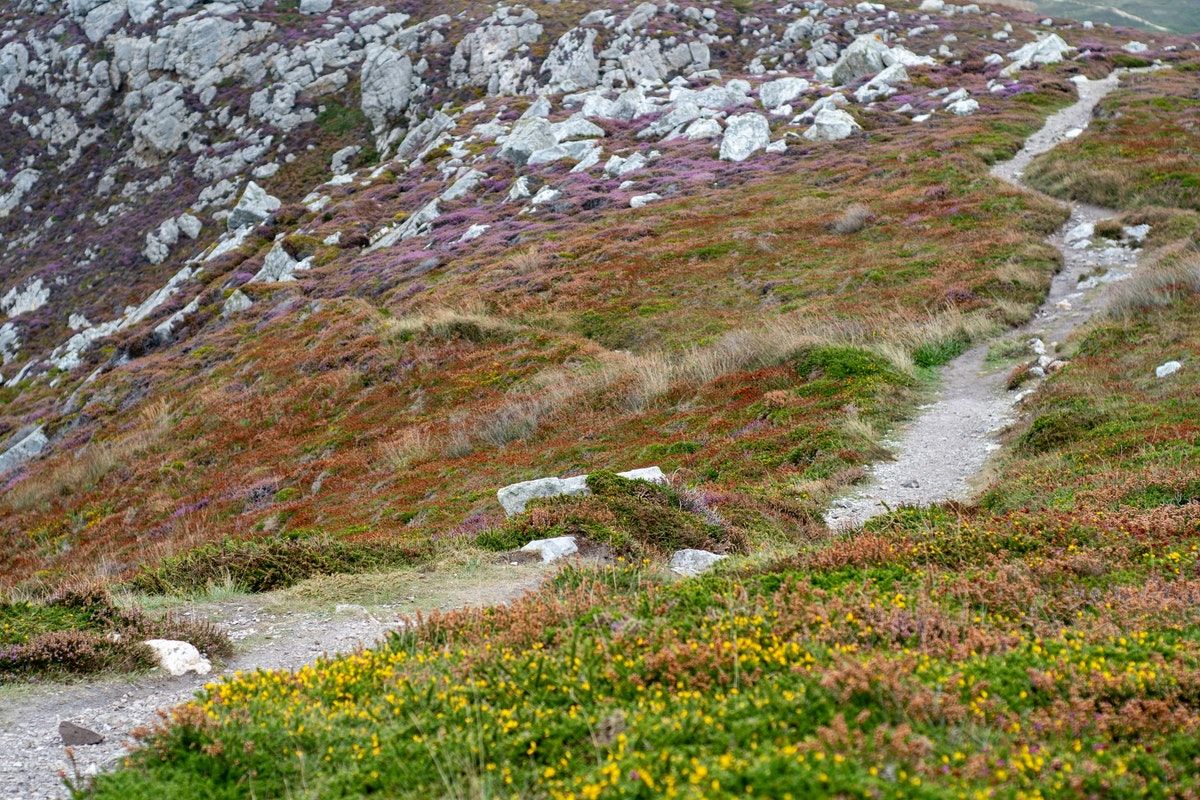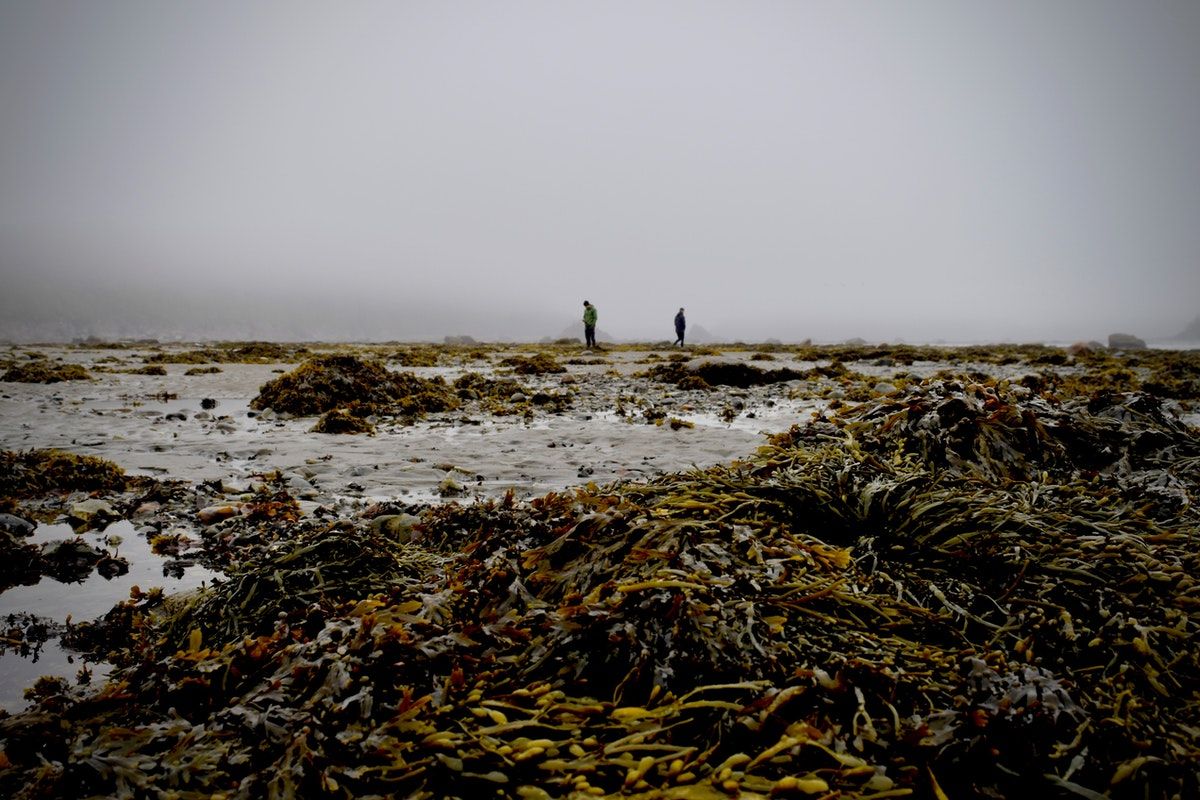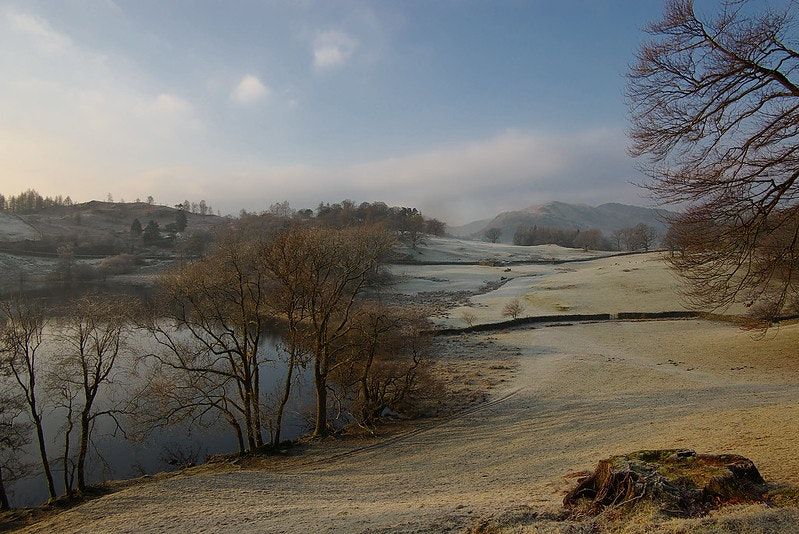
Farming Subsidies & Lake District Row
The latest news on nature and conservation in the UK.
National news
Farming | There has been a flurry of articles about farming this week, so I’m going to roll them all together. First, the RSPB is managing a trial subsidy scheme to protect turtle doves in East Anglia, reports the Telegraph. Some £320,000 will be available to landowners through a “reverse auction”, as part of the government’s trialling of its post-Brexit agriculture regime. Environment secretary George Eustice told the Yorkshire Post this week that farmers would be paid for the value of the public goods that they are providing, rather than the “income foregone” through those measures. But not everyone is keen on this new initiative. One Yorkshire farmer wrote in Farmers Weekly that his farm “will aim for all-out production. We will not be messing about digging ponds and laying hedges – a profitable farm is a healthy farm.” And, in the Telegraph, Richard Young of the Sustainable Food Trust warned that it could mean more high-carbon beef being flown in from Brazil. Meanwhile, the head of the RSPB, Beccy Speight, told the Telegraph that farmers are being “polarised” by the language around rewilding.
Trawling | The Marine Conservation Society released a report this week about bottom-trawling, finding that this destructive method of fishing is currently taking place in 98 percent of the UK’s offshore Marine Protected Areas, and that all but one of these MPAs experienced bottom trawling and dredging between 2015 and 2018. The organisation called for a complete ban on the practice in these areas. The report was covered by the Times, while the Independent looked at whether we should still be eating fish, given these facts. Defra also responded to the report. Separately, on the Andrew Marr show, Boris Johnson suggested that one benefit of Brexit would be that the UK “will be able to ban these huge hoover trawlers that come in and hoover up everything off the bottom of the sea”. Defra provided some additional context on that idea, while the BBC fact-checked his comments.
Gene editing | The government has launched a consultation on gene editing, which it says could “unlock substantial benefits to nature, the environment and help farmers with crops resistant to pests, disease or extreme weather and to produce healthier, more nutritious food”. The consultation was introduced in a speech by the environment secretary, George Eustice. This is distinct from genetic modification, as the Guardian explains, but has nonetheless been subject to strict rules that originate from the EU. The story was widely covered, including in the Independent and the Times.
In other news:
- The government has decided not to intervene in plans for the UK’s first deep coal mine in 30 years, reports the BBC.
- GPS collars for cows are helping to improve habitats, reports the Guardian.
- Village commons are at risk of development thanks to a 1960s planning mistake, reports the Telegraph.
- An anti-HS2 petition is rapidly gaining steam, the Telegraph reports. The petition itself is here.
- Extinction Rebellion Rewilding is rescuing at least 30,000 oak saplings from destruction, reports the Independent.
- Beech trees are at risk of a new disease, reports the Telegraph.
Across the country
Devon | A pioneering restoration of the Otter Valley can get underway after East Devon District Council approved the project. The £15 million, EU-funded scheme will reconnect the River Otter to its historic floodplain and return the lower Otter Valley to a more natural condition, according to the Environment Agency; this will create more than 50 hectares of intertidal mudflats, saltmarsh and other estuarine habitats. The project is a partnership between the Environment Agency, the Clinton Devon Estates, and the East Devon Pebblebed Heaths Conservation Trust. The news was covered in the Exmouth Journal.
Lake District | An argument has broken out between upland farmers and landowners in the Lake District, reports the Times. The row concerns a patch of land called Bampton Common, which is owned by the Lowther Estate and United Utilities. The commoners, who graze their sheep on the land, have been told that they must remove their flocks during winter months to allow the land to regenerate. But the farmers are having none of it, and are concerned that it could affect the hardiness of their rare-breed Herdwick sheep. “Somebody somewhere is ticking boxes thinking up these schemes but they don’t know, realise or care what effect it has on the common land and communities,” said one.
North Sea | The RSPB has criticised the government for its decision to permit an offshore wind farm, Hornsea Three, some 75 miles off Flamborough Head in Yorkshire – England’s largest seabird colony. The group says that kittiwakes will need to fly through the area, dodging turbines, to reach feeding grounds. The developers have said they will compensate for the impact on birds by building nesting towers on land – an idea that the RSPB says will take a decade to test. The BBC has an in-depth feature on this development, and how conservationists can manage the difficult balance between cutting carbon and protecting habitats. Meanwhile, East Suffolk Council has adopted a “neutral” stance to offshore wind farms, despite previous objections, after developers made efforts to address concerns, reports the East Anglian Daily Times.
Elsewhere:
- Hackney’s Happy Man Tree has been chopped down, despite efforts to save it, reports the Metro.
- Sewage fungus has been spotted after the Witney sewage works overflowed during heavy rain, reports the Oxford Mail.
- Crude oil has been exposed on a beach in Suffolk, more than 40 years after it was spilled by a tanker, reports the Lowestoft Journal.
- Prisoners in County Down have created dozens of nesting boxes for endangered birds, reports the Belfast Telegraph.
- Islanders in Orkney have helped to rescue a stranded orca, reports the BBC.
Reports
Farming | The Food, Farming and Countryside Commission have released a report called Farming for Change. It looks at new research showing how agroecology can produce enough healthy food for a future UK population – while also eliminating synthetic fertilisers and pesticides, nearly doubling the amount of land available for features like ponds and hedges, releasing 7.5 percent of agricultural area for more flexible use, and reducing greenhouse gas emissions. The Guardian and Edie covered the report.
Jobs | The centre-right think tank Onward has published a report called Getting To Zero, looking at how decarbonisation will put jobs at risk. It finds a strong overlap between areas of the UK that are reliant on high-emission industries and areas that are economically vulnerable and politically volatile. “This speaks to the central challenge we are trying to address: how can we successfully decarbonise the economy without leaving already vulnerable people and places further behind?” the report says. The Independent has covered the story.
Science
Turtle doves | A study by scientists from the RSPB and Natural England looks at the impacts of providing seed-rich habitats for turtle doves – an intervention that can be implemented through land management schemes, and which is, of course, hugely relevant to the turtle dove scheme mentioned earlier in this newsletter. The experiments described in this study appeared to have a positive impact on the abundance of territorial males (at least, the changes in numbers were “marginally less negative”), although there was no detectable influence on nesting success.
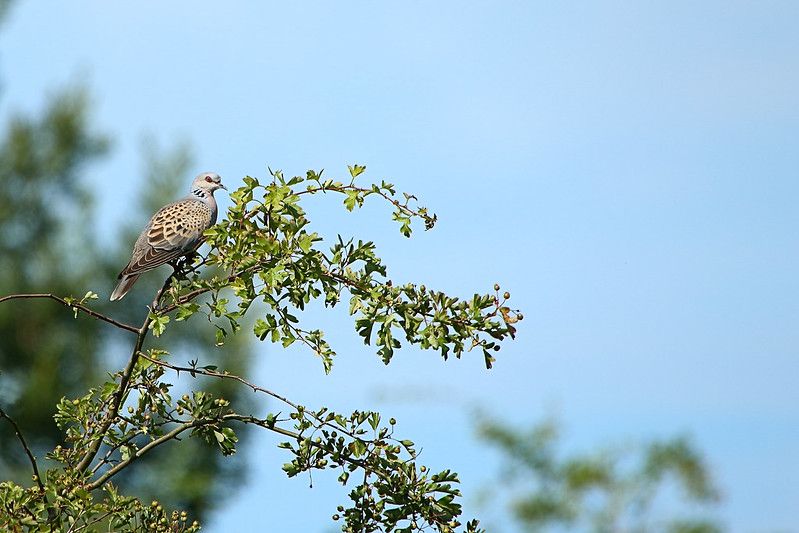
Grasslands | A study in Nature Communications looks at the effects of grasslands, both managed and natural, on climate change over the period 1750 to 2012. It finds that the climate warming caused by grasslands managed through livestock cancels out the cooling effect of carbon sinks in sparsely grazed and natural grasslands – meaning that the contribution to global warming is about neutral, but increasing. Interestingly, it also finds that the warming caused by the historical increase in livestock was partly balanced by the reduction in wild grazers. There’s certainly a lot to unpack in this study, if you’re looking for something to chew on this week.
Eagles | Another story that’s relevant to an earlier item in this newsletter, this time about birds and wind farms. A study in the Journal of Applied Ecology talks about a new computer model, created by researchers, that allows wind turbine developers to minimise the risk of collisions with eagles. The study was carried out on Verreaux eagles in South Africa. “The study shows that by applying this tool, instead of an exclusion buffer, developers can achieve the same level of protection for the eagles but can increase the areas of land available for safe wind energy development by around 20%,” explains a blog by the British Ecological Society.
Driftwood
Rewilding | The RSPB’s former conservation director, Mark Avery, has written a piece on rewilding for the Green European Journal. It looks at what rewilding means in a fundamentally altered world, how it has been applied in the UK and Europe, and what lies ahead for the concept. “Whether or not rewilding is the definitive way forward, it seems obvious that it is a way forward,” he says.
Grouse | Author and campaigner Guy Shrubsole has investigated the land owned by Viscount Matt Ridley, who owns two opencast coal mines in Northumberland, and discovered that he has recently acquired a grouse moor in County Durham. It’s a good bit of sleuthing, and raises some questions for Ridley, including whether burning still takes place on the moor, and if Ridley has carried out any lobbying around grouse shooting since he acquired the land. Read about it in Shrubsole’s blog, Who Owns England.
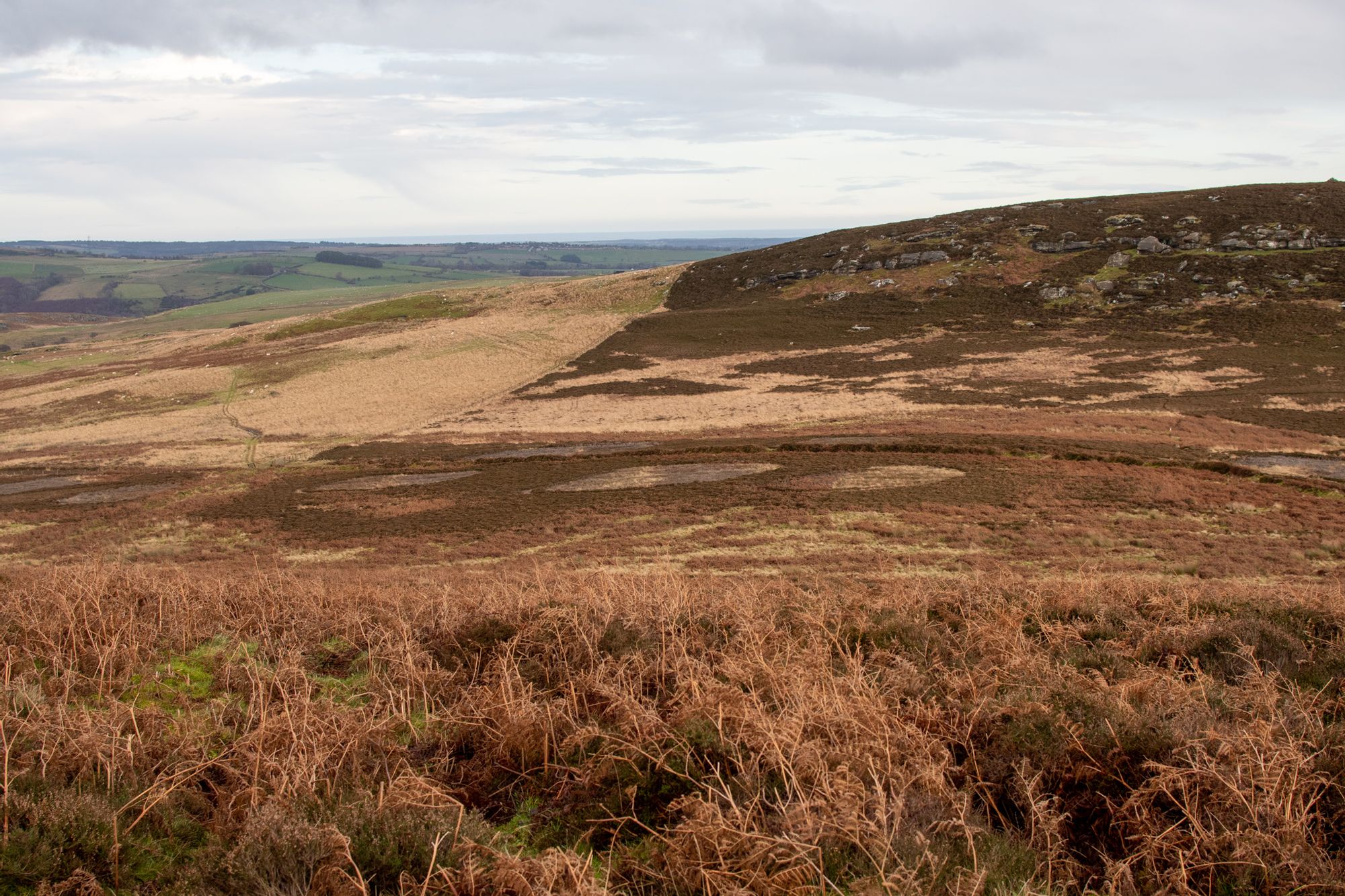
Nature | The heads of Natural England, the Environment Agency and the Forestry Commission – Tony Juniper, Emma Howard Boyd and William Worsley, respectively – have teamed up to write a piece in the Independent. It is something of a blueprint for the year ahead, including an outline of what actions for nature they intend to deliver during a year where conservation will likely be defined, again, by the pandemic, and by COP26 in Glasgow. “Our organisations will catalyse partnerships and act as pace-setters, helping the government meet its ambitions, and ensuring taxpayer money delivers high environmental, societal, and economic benefits,” they write.
Further reading:
- The Independent wants to know why we’re not eating insects yet.
- Nature writer Stephen Moss takes the long view on the impacts of climate change on birds in the Guardian.
- The Telegraph celebrates the role of the “wild belt”, the overlooked green spaces that have been a “literal lifeline” during the lockdown.
- WalesOnline has an unusually detailed article on landscape designations, mixing in quotes from Lake District farmer, James Rebanks.
Happy days
Scotland | The Guardian has published a brilliant series of photographs by Murdo MacLeod of abandoned places in Scotland that have been reclaimed by nature. If this is a subject that interests you, stay tuned, as an article on this very subject is soon to appear in Inkcap. It also came to my attention that MacLeod has also recently published a series of photos featuring search and rescue dogs in the Cairngorms, which truly brightened my day.
Image credits: Brian Toward, Airwolfhound, Inkcap
Subscribe to our newsletter
Members receive our premium weekly digest of nature news from across Britain.
Comments
Sign in or become a Inkcap Journal member to join the conversation.
Just enter your email below to get a log in link.


